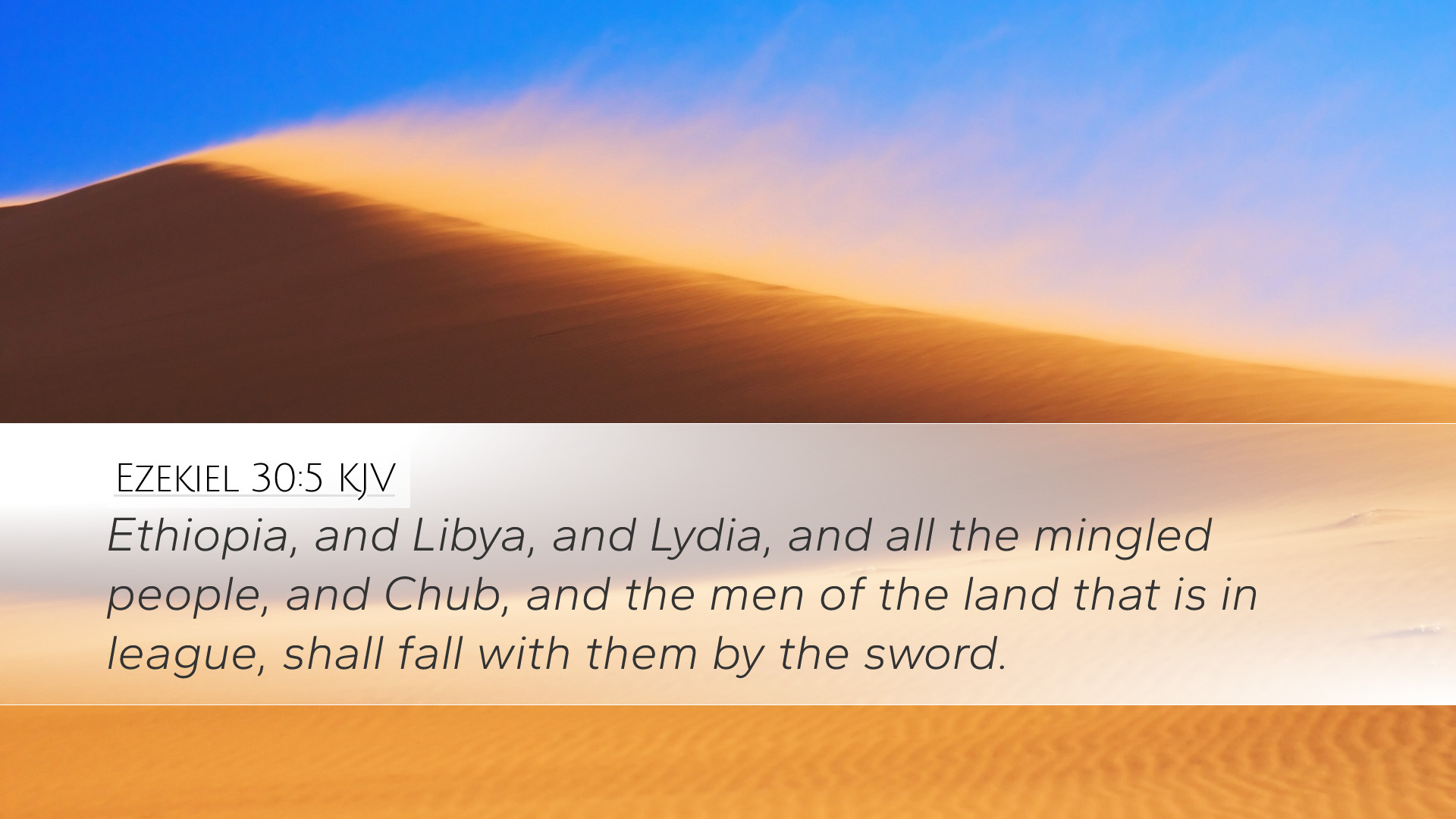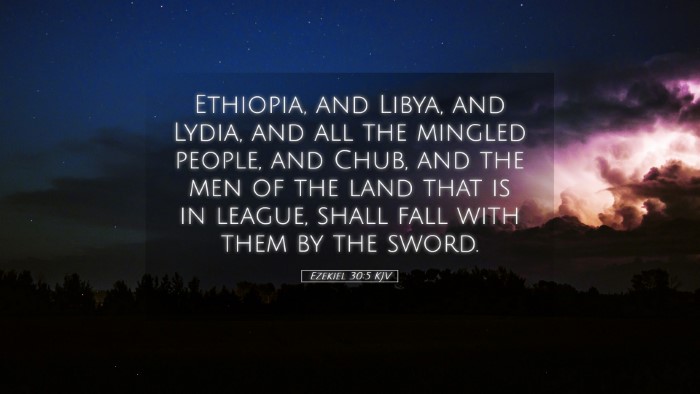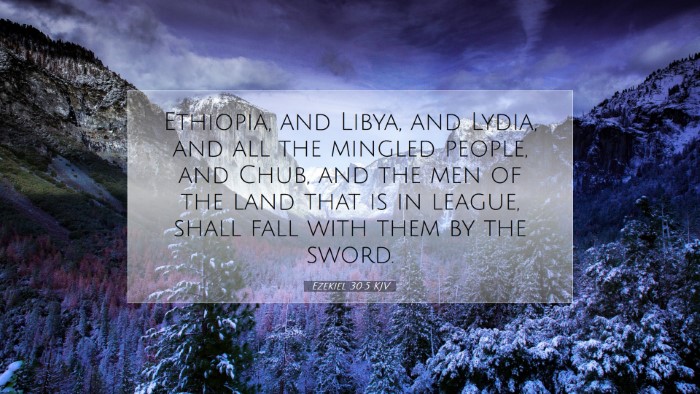Ezekiel 30:5 - Commentary Summary
Verse Context: Ezekiel 30:5 states, "Ethiopia, and Libya, and Lydia, and all the mingled people, and Chub, and the men of the land that is in league, shall fall with them by the sword." This passage forms part of God's prophetic judgment against Egypt and its allies, highlighting the impending consequences of their rebellion against Him.
Overview of Commentary Insights
The commentaries by Matthew Henry, Albert Barnes, and Adam Clarke provide invaluable perspective on this verse, focusing on themes of judgment, historical context, and theological implications.
Matthew Henry's Insights
Judgment Against Nations: Henry emphasizes that the prophecy reveals God's judgment not just on Egypt but also on the nations aligned with her. This serves as a reminder that God is sovereign over all nations and will execute justice against those in rebellion, regardless of their alliance.
Geographical Significance: The mention of Ethiopia, Libya, and Lydia signifies the breadth of God's judgment. Henry points out that these nations are well-known for their power and prominence in the ancient world, symbolizing that no earthly might can withstand divine decree.
Mingled People: Henry notes the significance of "mingled people," suggesting a mixture of nationalities that often came together for trade or military alliances. This serves as a metaphor for the futility of relying on human alliances when faced with God's judgment.
Albert Barnes' Commentary
Historical Context: Barnes discusses the historical context surrounding Ezekiel's prophecy. He notes that the geopolitical landscape of the time saw Egypt as a major power, and its alliances were crucial for its dominance. The prophecy thus serves not only as a warning but also as a declaration of the shifting powers of the ancient world.
Implications of Alliance: Barnes implies that the passage teaches about the dangers of misplaced trust in alliances rather than reliance on God. The fall of these nations illustrates that those who align against God inevitably face judgment.
Spiritual Lessons: Barnes also draws spiritual lessons from the text, emphasizing that, like those nations, individuals and communities today may also fall if they abandon divine wisdom for human wisdom and alliances.
Adam Clarke's Interpretation
Theological Implications: Clarke highlights the theological significance of this verse, underscoring the idea that God's sovereignty extends beyond Israel to encompass all nations. This reflects God's universal authority and the often-overlooked reality that His plans include nations outside of His covenant people.
Symbolism of Regions: Clarke elaborates on the specific regions listed. He points out that these nations had significant military capabilities and wealth, and their ultimate fall serves as a reminder that no amount of strength can rival the power of God. This serves as a warning against pride and overconfidence in human strength.
Prophetic Fulfillment: Clarke also discusses the prophetic nature of this scripture, indicating that it not only had present implications for the nations of Ezekiel's time but also serves as an enduring reminder of God's judgment and the eventual establishment of His kingdom.
The Collective Message
The combined commentary from these great scholars reflects a profound understanding of Ezekiel 30:5, emphasizing that God’s judgment is thorough, impartial, and ultimately redemptive. Observations from this verse offer a multifaceted approach to understanding the implications of divine judgment and the futility of placing trust in human alliances.
Reflections for Pastors and Theologians
- Pastoral Application: Pastors can draw from this verse to emphasize the importance of reliance on God's guidance and the dangers of societal alliances that compromise faith.
- Theological Reflection: Theologians should reflect on the universality of God's wrath and mercy, considering how the ancient text informs contemporary understandings of justice and divine governance.
- Missionary Focus: The mention of various nations underscores the need for the gospel to penetrate all people groups, reminding Christians of the call to spread the message of God's sovereignty to all nations.
Concluding Thoughts
This commentary on Ezekiel 30:5 reveals the multifaceted nature of biblical prophecy, the nature of divine judgment, and the significance of faithfulness to God over reliance on human structures. It challenges believers to examine their allegiances and trust in God's ultimate plan for humanity.


